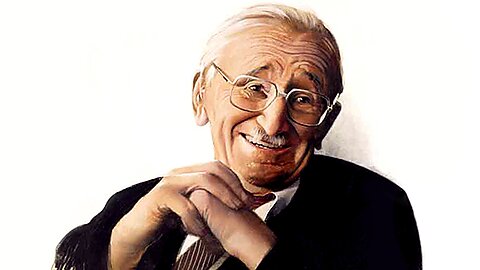This fall marks both the 50th anniversary of economist Friedrich Hayek winning the Nobel Prize and the 80th anniversary of the publication of his book The Road to Serfdom in the United States. Below, I reproduce an article (roughly translated) that I published in Peru last week about Hayek’s classic book.
Hayek had a huge influence in Peru, perhaps more than in any other Latin American country. In 1979, on the eve of the transition from military rule to democracy, economist Hernando de Soto invited Hayek to Lima, Peru to lecture. There, he met with other classical liberals like novelist and Nobel laureate in literature Mario Vargas Llosa and Cato adjunct scholar Enrique Ghersi, among others.
Hayek emphasized many of the messages in The Road to Serfdom while in Peru. In 1990, after years of heterodox and ruinous policies, Vargas Llosa ran for president on an explicitly libertarian platform. He lost the election to Alberto Fujimori but won the battle of ideas. Peru ended up adopting a far-reaching, free-market agenda along the lines that Fujimori had originally opposed.
Through regime changes and a succession of administrations, Peru has stuck to Hayekian-inspired economic policies, which have transformed the country and made it one of Latin America’s success stories.
“The Road to Serfdom?”
It has been 80 years since the publication of Friedrich Hayek’s The Road to Serfdom in the United States. Almost instantly the book became a classic and, within days of its publication, there were requests for its translation into Spanish and other languages.
Like any classic, the book by the Nobel laureate in economics was influential in its time and has remained so despite the changing times. With the Nazi dictatorship and the cataclysm of World War II in mind, Hayek warned against central planning. He worried that the collectivist mentality in democracies such as England’s would harm freedom significantly and could lead to totalitarianism, as it did in Germany.
The prime minister of the United Kingdom, Margaret Thatcher, made it known that Hayek’s ideas were shared by her government when it came to power in 1979. That same year, Hayek visited Peru when the transition to democracy was being planned. During that visit, Hayek insisted that democracy should not be idealized or equated with freedom. He said that democracy is not an end in itself, but rather a tool that should be used to limit power, support the rule of law, and safeguard individual freedom.
Hayek’s ideas had an enormous influence in Peru. Mario Vargas Llosa cites him as one of the three intellectuals who have had the greatest influence on his economic and political thought. And there is no doubt that, since the 1990s, Hayekian ideas have put Peru on the right track.
Fortunately, what Hayek feared might happen in the most advanced democracies did not happen. Indeed, totalitarian communism collapsed in the 1990s, as did central planning on a global scale. Hayek’s warnings helped.
But his warnings are still relevant in a world where too many countries are going down illiberal paths. What was one of Hayek’s main messages? He said that central planning, even if implemented under democracy, is incompatible with freedom.
That is so because “an economic plan involves the choice between conflicting or competing ends—different needs of different people.” Only politicians or experts will have the power to make decisions. Therefore, “it is inevitable that they should impose their scale of preferences on the community for which they plan.”
Decisions that affect everyone tend to be discretionary, favoring some more than others and thus violating the principle of equality before the law. In practice, the wishes of a minority are imposed on others. Central planning ends up destroying both democracy and freedom.
For Hayek, central planning guarantees arbitrary power. It must be so because we all have very different goals from one another. That is why those who adhere to a collectivist mentality commit the following mistake highlighted by Hayek: “The effect of the people’s agreeing that there must be central planning, without agreeing on the ends, will be rather as if a group of people were to commit themselves to take a journey together without agreeing where they want to go: with the result that they may all have to make a journey which most of them do not want at all.”
Today, it is painfully clear to Venezuelans that they chose the road to serfdom under democracy and have ended up in a totalitarianism they did not want. Mexico is now also heading in that direction and other Latin American leaders advocate going down the same path.
A welcome exception in the region is Argentina, whose president, Javier Milei, has read and understands Hayek, and is trying to lead his fellow citizens out of serfdom. After 80 years, Hayek’s classic is worth reading and rereading.

